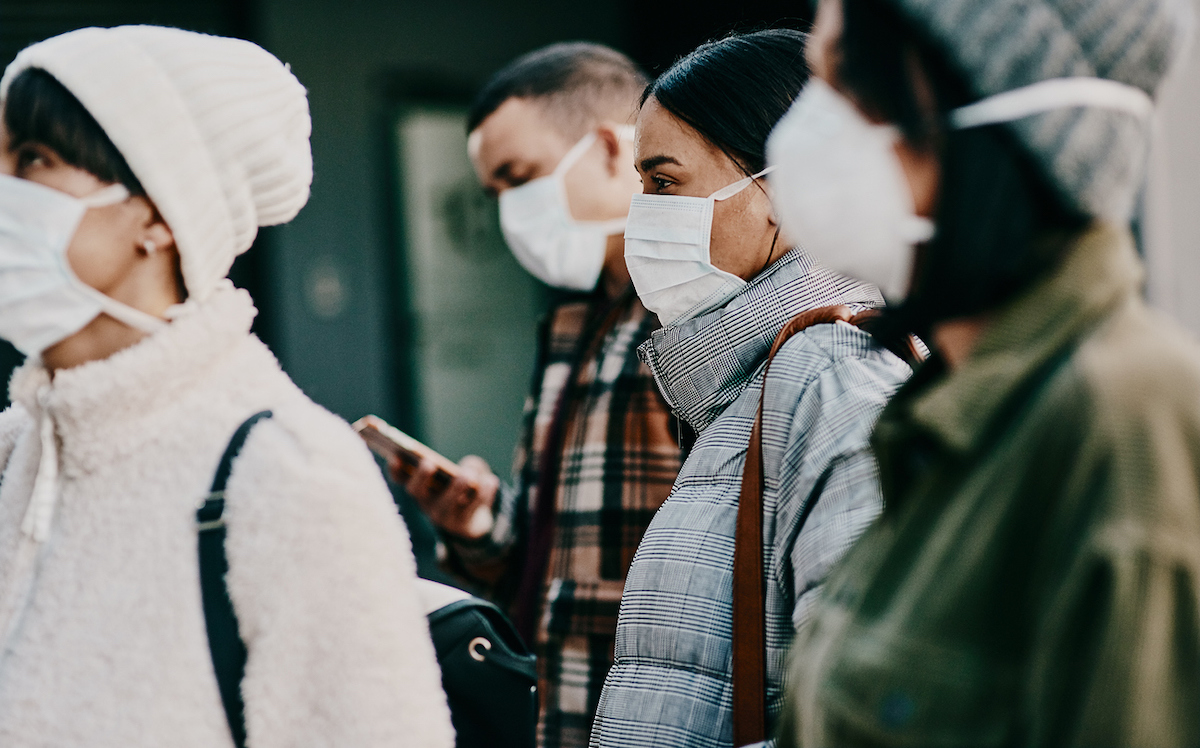While discussing the process of reopening schools during an interview with CBS’s This Morning on Feb. 15, Michael Osterholm, PhD, a member of the White House’s COVID advisory board, issued a stark warning: “The next 14 weeks I think will be the worst of the pandemic.” He continued: “People don’t want to hear that, but if we look at what these variants are doing, particularly this one from the United Kingdom, and see what it did in Europe, see what it’s done in the Middle East, it’s now beginning to start that here in the U.S. We are going to see that unfold.” And for more on the strain from England, check out The U.K.’s Top Scientist Has a Chilling COVID Warning for Americans. Osterholm went on to argue that efforts to open up schools were based on the currently rosy outlook provided by the national downswing in cases. “At this point, many of the areas can open up, [but] I don’t think they will be open up very long because of what’s coming down the pike with cases,” he predicted. According to Osterholm, the coming surge would cause most schools to close again in just six to eight weeks and these shutdowns would “last for likely at least up to 14 weeks.“ae0fcc31ae342fd3a1346ebb1f342fcb “We’re in a race with this variant in terms of vaccination,” he warned. “If we look at the numbers right now, there will be over 30 million Americans over the age of 65 who will not have the vaccine by the end of March, when we are going to be in very, very dark days … In the meantime, masks are the best thing we have in terms of reducing transmission—of course in addition to just distancing yourself [and] don’t put yourself in harm’s way.” And for more COVID news delivered right to your inbox, sign up for our daily newsletter. Osterholm wasn’t alone in his prediction that another wave of cases could be awaiting the U.S. “It’s nice to see the number of cases drop, but it can be misleading,” Andy Slavitt, senior advisor for the White House’s COVID-19 response team, said during an on-air interview with MSNBC’s Hallie Jackson on Feb. 15. When asked his thoughts on Osterholm’s fears that the worst days of the pandemic could lie ahead, Slavitt reaffirmed his colleague’s warning that highly contagious variants could indeed spark the next dark chapter—and that becoming complacent would be a grave mistake. “Unfortunately we can’t predict the future and we know that this virus has been nothing but full of surprises for us … and I think there are more surprises to come,” Slavitt cautioned. “I don’t think we are anywhere close [to] out of the woods. I don’t expect that we are going to be seeing just smooth sailing from here. It would be such a shame to take our foot off the gas too early.” And for more on what you shouldn’t be doing as you try to up your PPE, check out If You’re Layering These Masks, the CDC Says to Stop Immediately. Slavitt’s and Osterholm’s dire predictions were also echoed by Anthony Fauci, MD, chief White House COVD adviser, in a Feb. 13 interview with The New York Times. “If you look at the plotting of the cases, they have peaked, they’re turning around and are starting to come down,” he explained. “Likely, the more time that goes by, the less and less cases we’ll see. Unless—and this is a possibility—we have an unexpected surge related to some of the variants.” Fauci specifically pointed out that the U.K. variant, which is expected to take over in the U.S. next month, could potentially reverse the progress we’ve made unless the public remains vigilant. “The variant that is in the U.K. that is likely going to become more dominant in the U.S., the models tell us that will happen probably by the end of March,” Fauci said. “If we don’t adhere to public health measures the way we should, that could take off on us. That’s the reason why I say I’m cautiously optimistic because we could turn around and go the opposite direction pretty quickly.” And if you’re looking to get vaccinated to avoid these variants, check out Dr. Fauci Says You’ll Easily Get a Vaccine Appointment After This Date.



